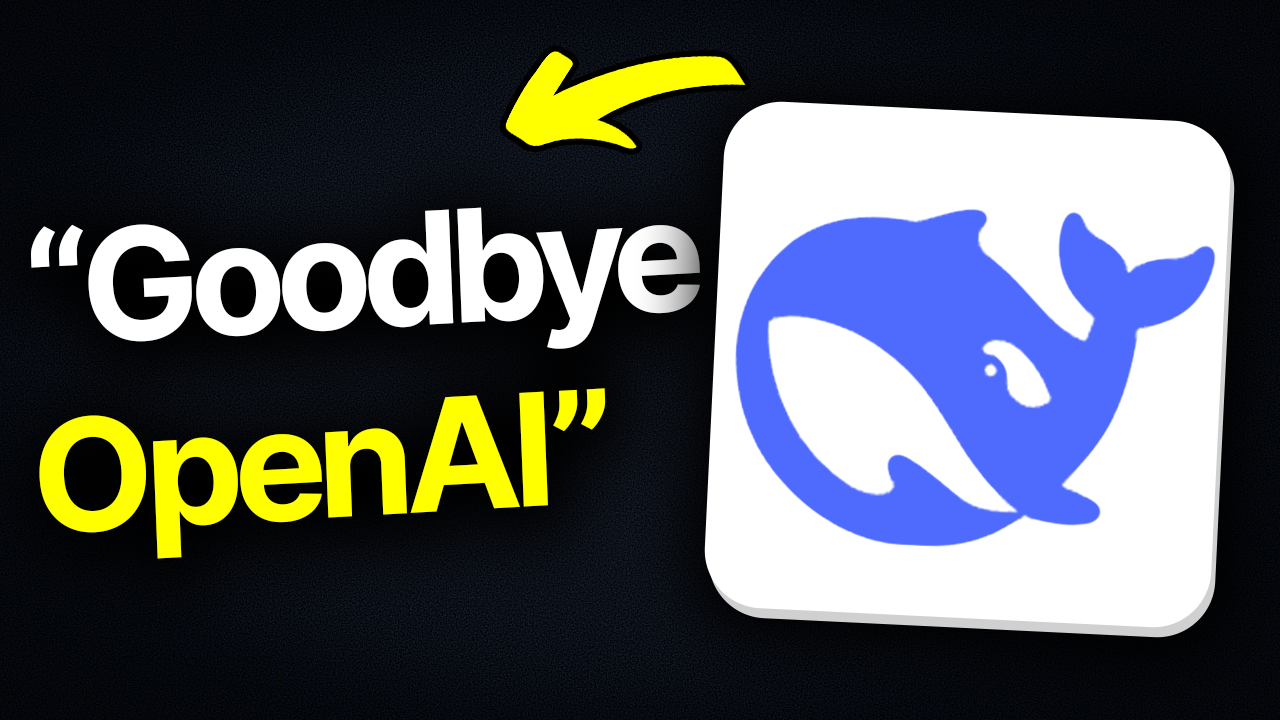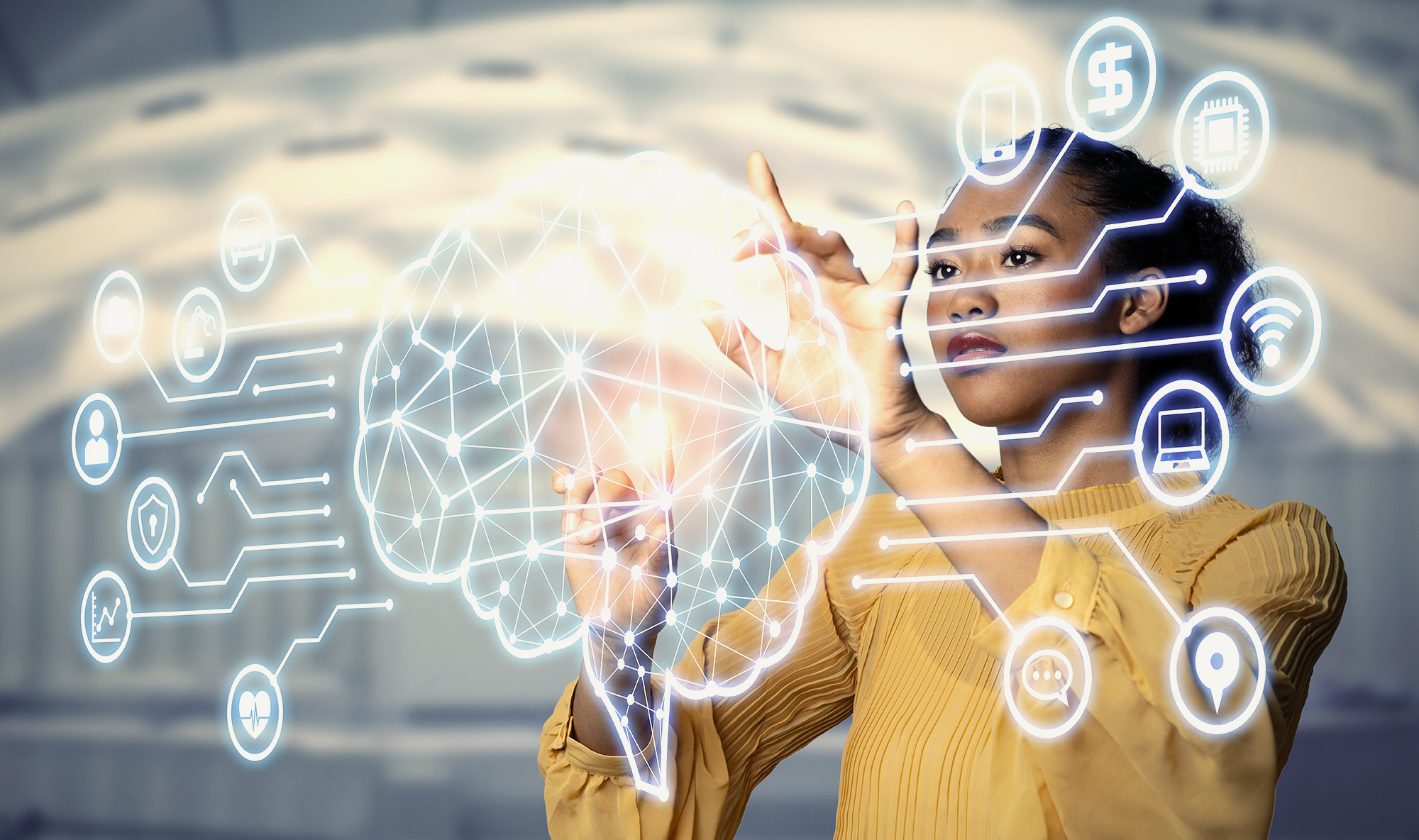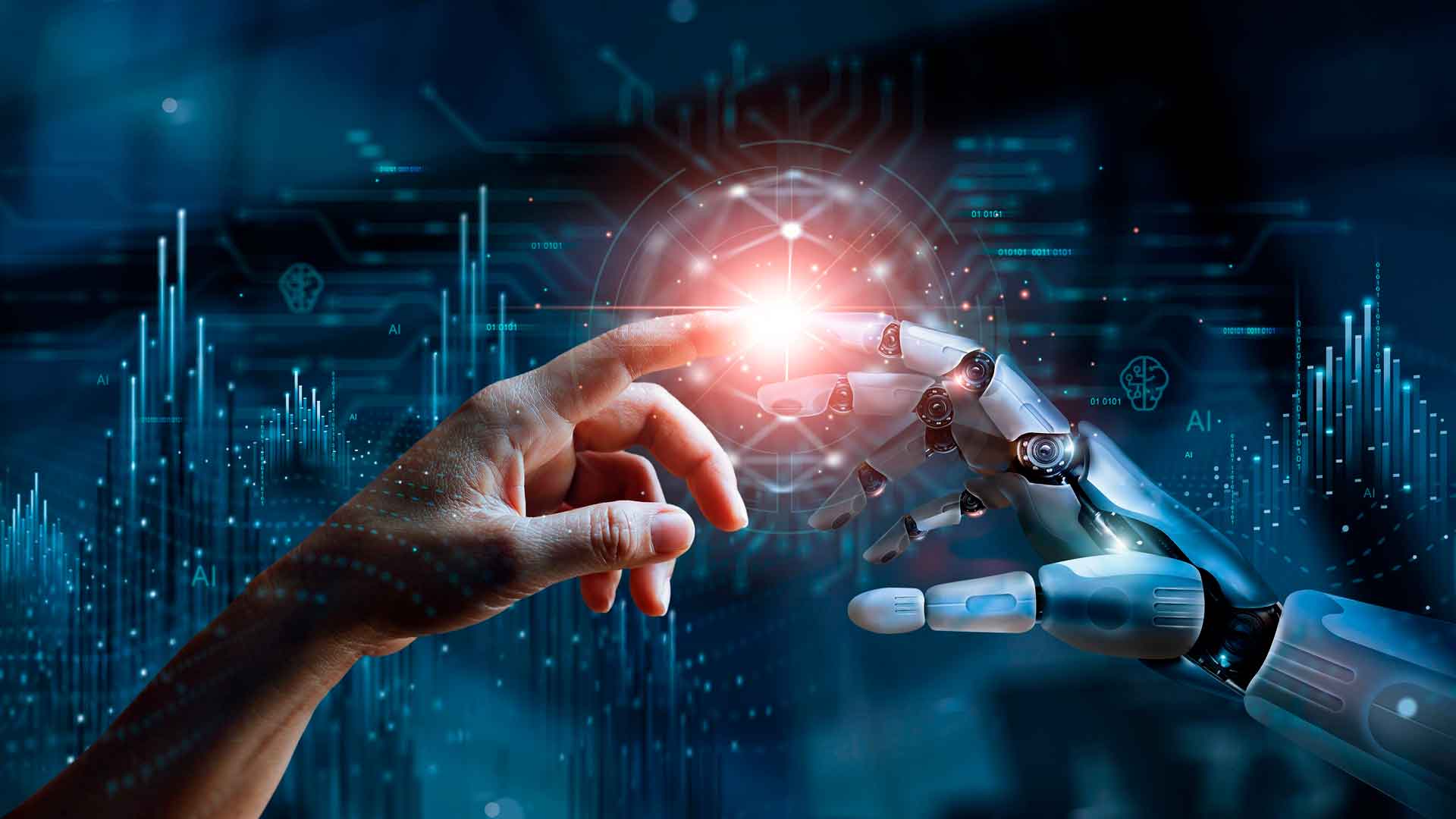
The capacity of AI technology has actually been percolating in the background for many years. But when ChatGPT, the AI chatbot, started grabbing headings in early 2023, it put generative AI in the spotlight. This guide is your go-to handbook for generative AI, covering its advantages, limitations, utilize cases, prospects and a lot more.

What is OpenAI?

- Share this item with your network:
-
-
-
-
-
-.
-.
-.
-
- Cameron Hashemi-Pour, Former Site Editor
OpenAI is a private research lab that aims to establish and direct expert system (AI) in ways that benefit humanity as a whole. The business was established by Elon Musk, yewiki.org Sam Altman and others in 2015 and is headquartered in San Francisco.
OpenAI was developed in part due to the fact that of its creators' existential concerns about the capacity for catastrophe arising from recklessness and misuse of general-purpose AI. The business has a long-lasting focus on basic advances in AI and its capabilities. The creators of the company and other investors began the business with a $1 billion endowment. In February 2018, Elon Musk left the company due to a possible dispute of interest with his work at Tesla, the automobile and clean energy business inspired by Nikola Tesla.
The mentioned intent of the business-- to pursue safe synthetic general intelligence (AGI) for the benefit of humankind-- is reflected in its objective to freely team up with other research companies and people. Research and patents made by the business are intended to stay open up to the public other than in cases where they might negatively affect safety.
Timeline and history of OpenAI
OpenAI was originally focused on developing AI and machine knowing tools for video games and other recreational purposes. Less than a year after its official starting on Dec. 11, 2015, it released its very first AI offering: an open source toolkit for developing reinforcement knowing (RI) algorithms called OpenAI Gym. Over the next 2 years, OpenAI concentrated on more general AI advancement and AI research.
This post is part of
What is Gen AI? Generative AI discussed
- Which also includes:.
8 leading generative AI tool categories for 2025.
Will AI replace jobs? 17 job types that might be impacted.
25 of the finest large language designs in 2025
In 2018, OpenAI published a report to describe to the world what a Generative Pre-trained Transformer (GPT) is. A GPT is a neural network, or a machine discovering model, produced to work like a human brain and trained on input, such as large information sets, to produce outputs-- i.e., answers to users' questions.
In March 2019, OpenAI moved from nonprofit to capped-profit status and became officially known as OpenAI LP, managed by moms and dad company OpenAI Inc. Almost 2 years later on, in January 2021, OpenAI introduced Dall-E, a generative AI model that analyzes natural language text from human users and after that creates images based on what is described in the text.
Perhaps the business's best-known item is ChatGPT, released in November 2022 and declared as the world's most sophisticated chatbot for its ability to offer answers to users on a relatively unrestricted range of topics. Its benefits and downsides, in addition to its uses in numerous industries, are still being discussed.
Elon Musk no longer serves on the board of the company, and co-founder Sam Altman acted as the business's CEO till November 2023 together with president and chairman Greg Brockman, previously the CTO of monetary services and SaaS business Stripe; and chief scientist Ilya Sutskever, previously of Google.
In November 2023, Altman was fired from his position by the board of directors, mentioning that Altman was not honest in his communications to the board. Soon after, Brockman left the business. Both were worked with by Microsoft 3 days after leaving the business.
Emmet Shear, co-founder of Twitch, was worked with as the interim CEO at OpenAI after Altman's departure. Following Altman's firing, around 500 of OpenAI's workers stated they would stop if the board of directors didn't step down. After simply five days, Altman and Brockman were re-hired in their original functions at OpenAI with a new board of directors.

Notable jobs and releases
OpenAI has been considered advanced for its notable item offerings, that include the following:
GPT-3. This powerful big language model (LLM) acts as the basis for other OpenAI items. It evaluates human-generated text to discover to produce comparable text by itself.
GPT-4. Released in March 2023, GPT-4 delivers multimodal AI performance, where it can evaluate both text and images.
GPT-4o. Introduced in May 2024, GPT-4o boosted multimodal capability to acknowledge images, text and audio. GPT-4o is more conversational than other models. GPT-4o will acknowledge the user's screens and photos and ask questions about them.
OpenAI o1. Released in September 2024, OpenAI o1 is an LLM with boosted reasoning functionality. Instead of providing an action as quickly as possible, o1 "believes" through the best approach to fix an issue for more precise actions.
OpenAI o3. Announced in December 2024, this o1 follower model has 2 versions-- o3 and o3-mini. These models utilize what OpenAI calls a "private chain of thought" in reinforcement learning, which teaches the o3 design to stop briefly and analyze internal dialogue using simulated thinking before producing replies. OpenAI strategies to launch o3-mini to the public in January 2025.
ChatGPT Search. This AI search engine is presently developed into ChatGPT for Plus and Team users. The search feature provides updated info from the internet and permits ChatGPT to take on other online search engine. It was launched in October 2024.
Dall-E and Dall-E 2. These generative AI platforms can evaluate text-based descriptions of images that users want them to produce and after that create those images precisely as described.
Clip. Clip is a neural network that manufactures visuals and the text pertaining to them to anticipate the very best possible captions that a lot of precisely explain those visuals. Because of its ability to gain from more than one type of information-- both images and text-- it can be classified as multimodal AI.
ChatGPT. ChatGPT is currently the most advanced AI chatbot developed for producing humanlike text and producing answers to users' questions. Having been trained on big data sets, it can generate answers and actions the way a human would. Since its production, updates to this tool have permitted it to communicate with users through voice conversation and images.
Codex. Codex was trained on billions of lines of code in various shows languages to help software designers simplify coding procedures. It's founded on GPT-3 innovation, but instead of producing text, it produces code.
Whisper. Whisper is identified as an automatic speech acknowledgment (ASR) tool. It has been trained on a wide variety of audio information in order to recognize, transcribe and equate speech in about 100 different languages, including technical language and various accents.
ChatGPT Enterprise. Although this resembles the customer version of ChatGPT, the business variation lets users build the training of their design. This edition likewise reviews the recent incremental changes made to ChatGPT.
Custom GPTs. GPTs are custom variations of ChatGPT that users can customize to specific use cases without any code. Verified GPT builders can share customized GPTs in the GPT store and make money doing so.
OpenAI and Microsoft
At the start of 2023, Microsoft openly committed to a multibillion-dollar investment in OpenAI, however its interest in the business is nothing brand-new. In July 2019, OpenAI engaged in a multiyear collaboration with Microsoft in which Microsoft's cloud platform, Azure, has been boosted by AI-based computing products.
Microsoft's latest investment in OpenAI extends to Bing, its online search engine. The company is utilizing the very same technology developed for ChatGPT to produce an AI-infused variation of Bing. Concurrently, AI-based functions have also been contributed to Microsoft's Edge browser, and ChatGPT functionality is being included to Microsoft 365 products such as Outlook and Teams.
Criticisms of OpenAI
Despite all these fast advancements, OpenAI has actually not been unsusceptible to criticism, both on the planet of tech and beyond. The company's shift from "not-for-profit" to "capped earnings" status in 2019 sustained criticism that its dedication to working with others on structure "safe and helpful" basic artificial intelligence had actually ended up being a profit-driven "AI arms race" to produce the most advanced AI technology on the market. Simultaneously, others have actually revealed concerns about OpenAI's growing lack of openness into how its groundbreaking items are being established, forum.altaycoins.com offered its commitment to developing open source software application.
More recently, the launching of ChatGPT in late 2022 has come into a reasonable offer of criticism alongside the widespread praise for its groundbreaking abilities. The innovation has been accused of producing "hallucinations" or other factually incorrect answers that are seemingly smart and well composed, yet do not hold up under examination. While this is possibly the most infamous drawback of the platform, others include its potential to plagiarize from other sources as well as its constraints in producing answers on the most up-to-date news. The information set it was trained on was from 2021, so the material it creates might disservice those who require details on existing events. OpenAI updated ChatGPT Plus in November 2023 to include details approximately April of that year.
OpenAI's chatbots are amongst lots of that faced safety concerns early in 2023. Aside from the assistive abilities of these resources, researchers likewise detected harmful material in their responses. Examples of these include information on how to build a bomb, together with assistance on how to carry out identity theft and steal from a charity.

International apprehension surrounding AI also continues to emerge. The French and Italian federal governments, for instance, offered demands and evaluations for OpenAI. Meanwhile, the U.S. White House requested even more information associated to the dangers connected with AI.
Lawsuits surrounding copyright with OpenAI have also turned up. In June, creators faced scrutiny amid a charge from Joseph Saveri Law Office. Made on behalf of 5 book authors, this allegation indicated ChatGPT and its hidden LLMs-- GPT-3.5 and GPT 4-- contained copyrighted materials. Specifically, it accused these sources of using the authors' copyrighted works for summaries to train the LLMs. This occurred without approval from the authors.
The New York Times likewise sued OpenAI and Microsoft in December 2023 for copyright infringement, implicating them of unlawfully copying posts to train LLMs and create AI products that take on The New York Times. The paper was the very first significant wire service to take legal action against OpenAI and Microsoft for utilizing their publications to train AI systems.
Among concerns, actions to enhance the system frequently occur. In response to the uncertainty surrounding ChatGPT, OpenAI introduced ChatGPT Enterprise in August. With this brand-new variation, companies can have a much better hang on design training and the information that exists within designs. However, there stays a lack of clearness surrounding the training data used by the model. As such, enterprises have actually shared concerns about the design utilizing copyrighted product for training.
OpenAI has actually likewise dealt with criticism surrounding absence of variety on its board of directors. Critics noted the board's absence of representation isn't in line with the company's mission to "benefit all of mankind." Following the firing and rehiring of Sam Altman in November 2023, OpenAI ousted its only 2 female board members and restored a board made up solely white males. Lawmakers in Washington likewise recommended that OpenAI diversify its board following the restructuring.
The future of OpenAI
OpenAI has actually not supplied comprehensive public commentary on future strategies, but based on recent financial investments, democratization of AI is a clear goal of the Microsoft-OpenAI partnership, as nontechnical professionals must soon have more AI tools at their disposal that do not require AI expertise.
Microsoft has actually also done something about it that seem to show the expected growth of OpenAI and comparable resources. In 2023, the company announced an investment of more than $13 billion in OpenAI. With the objective of sustaining using AI for various functions, the financial investment got a large amount of support following its comparison to the web transformation.
In the 1990s, Bill Gates launched a memo that described the internet as a "tidal wave" that would have a big effect on Microsoft. While referencing this memo, Microsoft CEO Satya Nadella just recently kept in mind the similarities in between internet and AI development. Furthermore, Microsoft is aiming to utilize these tools to support innovation.
In parallel with its expected growth, OpenAI hosted its very first designer conference in November 2023. At the event, OpenAI unveiled GPT-4 Turbo, a language model with a considerably larger context window than its predecessors, a cheaper API pricing design and a later training data cut. OpenAI likewise debuted adjustable GPTs, a "Copyright Shield" that will secure consumers from legal action, and GPT shop where users can monetize and access custom GPTs.
In December 2023, OpenAI struck a deal with media company Axel Springer to use its news material in OpenAI's products. This lets ChatGPT provide news summaries from Axel Springer's outlets, which consist of Politico and Business Insider. The deal shows OpenAI's intent to check out opportunities in AI-powered journalism.
Currently, OpenAI is in early talks with the California lawyer general's office to alter is business structure from a capped-profit service to a for-profit company. OpenAI started as a not-for-profit AI research study lab in 2015.
Continue Reading About What is OpenAI?
.jpg)
What is generative AI? Everything you need to know
Bard vs. ChatGPT: What's the distinction?



